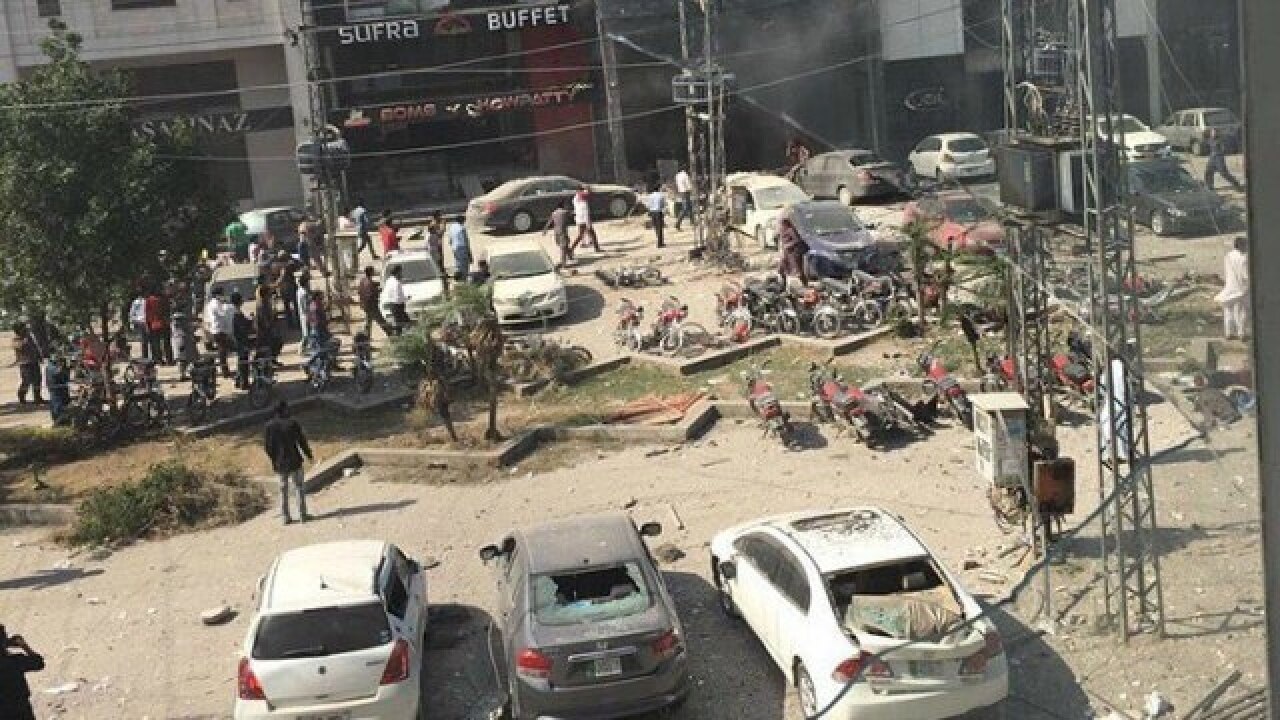
Recent days in Pakistan serve as a bloody reminder that the country’s hide and seek game with “good” and “bad” terrorists always ends with terrorists winning the bounty. Jamaat ul Ahrar (JuA), a breakaway faction of the Pakistan Taliban, formed in 2014 during the Operation Zarb-e-Azb offensive to dismantle militants from the porous border region straddling Afghanistan, is a relatively young militant group. The group is largely responsible for the renewed spate of the terror attacks. Since Valentine’s Day, ten back-to-back terror attacks, including one in Lahore on Thursday, have killed over 130. Four attacks were claimed by JuA as part of its ongoing ‘Operation Ghazi’ to avenge the killing of Lal Masjid preacher Abdul Rasheed Ghazi. The other deadly attack at the Sufi shrine in Sehwan, Balochistan, where 88 died, was claimed by the Islamic State of Khorasan Province (ISKP)—branch of the Islamic State or ISIS— present in Afghanistan since 2015.
The new players are causing havoc in a militancy infested landscape, which already boasts of groups focussed on India and Afghanistan, foreign terrorists, extremist Islamists and sectarian groups attacking Shias, minorities and non-Muslims. Collectively, these blow irreparable holes in Pakistan’s commitment to fight terrorism of all hues. Zarb-e-Azb’s relative success, with 3,500 terrorists dead, reinstated Pakistan’s image from ‘terror sponsor’ to an important ally in the eyes of the international community and the US in fighting terrorism, albeit momentarily. The military boasted that its offensive in North Waziristan had militants on the run. In reality, many militant groups sneaked across the border into Afghanistan to find safe havens.
These included the Tehreek-e-Taliban (TTP) leadership and its disparate factions who sought retribution against the military. The carnage at the Army Public School in Peshawar in December 2014 that killed almost 150 people, mostly children, was a signal that the terrorists would not be coaxed into talks. The JuA, which emerged out of leadership discord within the Taliban, has close ties to al-Qaeda and the Islamic State, and shares the global jihadi ideology to control the historical Khorasan region for establishing a Caliphate and implementing Islamic laws in Pakistan. The group, with operational presence in the FATA region, has struck deep in Pakistan’s urban centres, demonstrating its support network and reach. Its leader, Omar Khalid Khorasani, has emerged as a major threat to Pakistan’s internal security, with over 100 attacks on varied targets: Shias, Christians, government institutions, lawyers and security forces.
The strengthening of JuA, whose alliances with foreign militants from al-Qaeda, Uzbekistan and Chinese Uyghurs, is a blowback of Pakistan’s own policies that has created a complex jihadi ecosystem. Pakistan has allowed Islamists to freely propagate and teach sectarian views, raise money for the holy war and nurture jihadis to meet its foreign policy aims in Kashmir and Kabul. It has supported the Afghan Taliban and allowed foreign terrorists to seek sanctuary in its backyard. But this time, Pakistan has blamed Afghanistan for sheltering the militants attacking Pakistan. Both JuA and the IS are present in the border region with unobstructed access. Army chief General Qamran Bajwa has now turned the focus back on the western border.
Hours after the Sehwan blast, the Pakistan military reportedly attacked the JuA training camps in Afghanistan’s eastern provinces. Bajwa has also sought US support to stop the use of Afghan soil for staging attacks in Pakistan. Steps are being taken to prevent cross-border movements of terrorists and their illegal entry. The Pak Army also summoned Afghan officials with a list of 76 terrorists hiding in Afghanistan demanding immediate action. Afghanistan responded with its own list of 82 terrorists and training camps demanding that Pakistan stop shielding them. After all, the Afghan Taliban and the dreaded Haqqani network, responsible for the worsening security situation in Afghanistan, fall in the bracket of “good terrorists” for the Pakistan army. With mounting domestic and international pressure to crack the whip, Bajwa has hinted that the days of restraint are over. Decades of policies supporting jihad under the name of Islam and for military gains have blurred the lines between victims and perpetrators. Pakistan resembles a complex chess board where the military’s moves to checkmate militants often results in the Army getting checkmated itself.